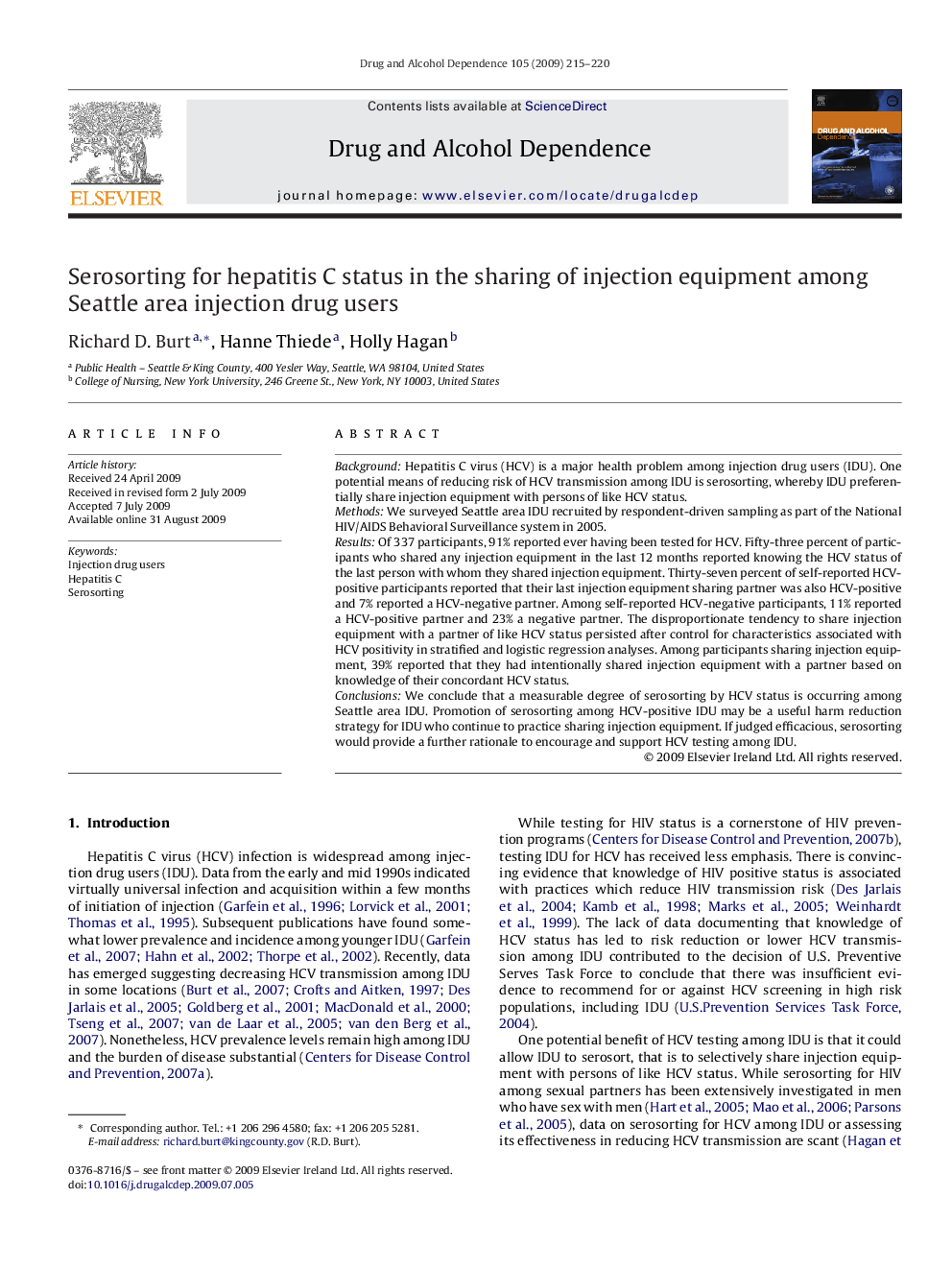| Article ID | Journal | Published Year | Pages | File Type |
|---|---|---|---|---|
| 1070583 | Drug and Alcohol Dependence | 2009 | 6 Pages |
BackgroundHepatitis C virus (HCV) is a major health problem among injection drug users (IDU). One potential means of reducing risk of HCV transmission among IDU is serosorting, whereby IDU preferentially share injection equipment with persons of like HCV status.MethodsWe surveyed Seattle area IDU recruited by respondent-driven sampling as part of the National HIV/AIDS Behavioral Surveillance system in 2005.ResultsOf 337 participants, 91% reported ever having been tested for HCV. Fifty-three percent of participants who shared any injection equipment in the last 12 months reported knowing the HCV status of the last person with whom they shared injection equipment. Thirty-seven percent of self-reported HCV-positive participants reported that their last injection equipment sharing partner was also HCV-positive and 7% reported a HCV-negative partner. Among self-reported HCV-negative participants, 11% reported a HCV-positive partner and 23% a negative partner. The disproportionate tendency to share injection equipment with a partner of like HCV status persisted after control for characteristics associated with HCV positivity in stratified and logistic regression analyses. Among participants sharing injection equipment, 39% reported that they had intentionally shared injection equipment with a partner based on knowledge of their concordant HCV status.ConclusionsWe conclude that a measurable degree of serosorting by HCV status is occurring among Seattle area IDU. Promotion of serosorting among HCV-positive IDU may be a useful harm reduction strategy for IDU who continue to practice sharing injection equipment. If judged efficacious, serosorting would provide a further rationale to encourage and support HCV testing among IDU.
